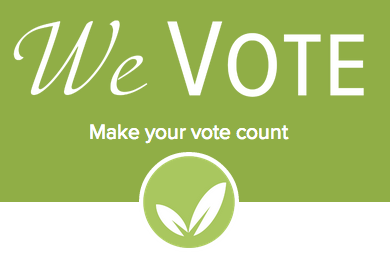
Government legislation can be a tedious and confusing for an average citizen to follow.
And to participate, it’s largely stuck in old school fashion: making a phone call, emailing your representatives or attending a public hearing.
It’s a problem that a group of four civic-minded Nebraskans ran into individually. Now they’re coming together to create a non-partisan tech platform that hopefully will make communication and navigating legislation a lot easier.
The difficulty of figuring out government adds to what is already a big problem of voter apathy and lack of civic engagement, says Caleb Cassel, co-founder of We Vote.
“The State of Nebraska website is God awful,” he says. “Trying to follow legislation can be difficult—it’s something we all ran into as activists.
“Following and participating in government takes a lot of time and dedication, but the We Vote project hopes to pull all the info into one centralized location so you get a better view of a bill and its progress.”
We Vote provides a focused combination of total information transparency of legislative bodies with the communication tools for citizens to share and discuss the legislative events as they unfold in real time better than any other legislative software or site in existence, co-founders say.
The Sunlight Foundation gave Nebraska an F in legislative transparency.
“We Vote not only turns that F into an A, but it also provides a secure avenue for citizens to discuss legislation with their elected officials and tools to build coalitions with fellow citizens so they are not acting alone,” said co-founder Luke Waltman.
The site, which beta tested during this year’s Nebraska Unicameral session, will relaunch this January. Cassel said they learned a lot, including the idea to drill down and focus on just a few features—they want to make it easier, not harder for average citizens to engage in the process.
The site has three main functions:
- Act as a conduit between legislators and constituents.
- A social petition platform where constituents can voice their opinion on proposed legislation. They can comment directly on a bill and rally support among like-minded individuals.
- A simplified hub to follow bills through the legislative process. The site will keep you updated on the progress of the bill including when you participate like during a public hearing at the committee stage.
The co-founders hope to raise money through a Kickstarter campaign later this year.
“There’s a lot of things that need to be fixed with technology at the state level, but right now we’re focusing on citizen activism and making government more transparent,” Cassel said.
Users who sign up will be verified against the voting rolls, which will allow representatives to know who they’re actually hearing from, Cassel said. Many forms of communication—Facebook, town halls over the phone and other outreach vehicles—make it hard to know who is really talking and if they are a constituent.
The project started in the summer of 2012 when the friends, who knew each other through different political activists groups or as legislative aids, came together to work on an open government project that later turned into WeVote. The four co-founders—Cassel, Waltman, Andrew Curran and Zach Alexander—all have different backgrounds. Cassel works as a developer at Hudl and works on WeVote in his spare time.
But the goal, he says, is to make the platform available for all 50 state governments.
“That’s where citizens can have the most impact,” he says.
The tough part is convincing governments, elected officials and citizens to use it.
“It comes down to telling the right stories,” Cassel said. “It doesn’t take that many people working together to make an impact on issues you care about… once people realize that, it’s empowering.
“We feel that We Vote gives you the most impact with the least amount of work. Offering an electronic communication tool where officials can talk to constituents and vice versa is a win for both parties.”





One response to “We Vote hopes to clear up confusing political system, communication”
You know, I’ve been involved in various political movements in the past. One in particular was all over national media. However, I never registered to vote. I never thought it counted. We Vote has changed my perception of govt and am pleased to say at 34 years young, I’ve registered to vote for the first time. This could change everything.